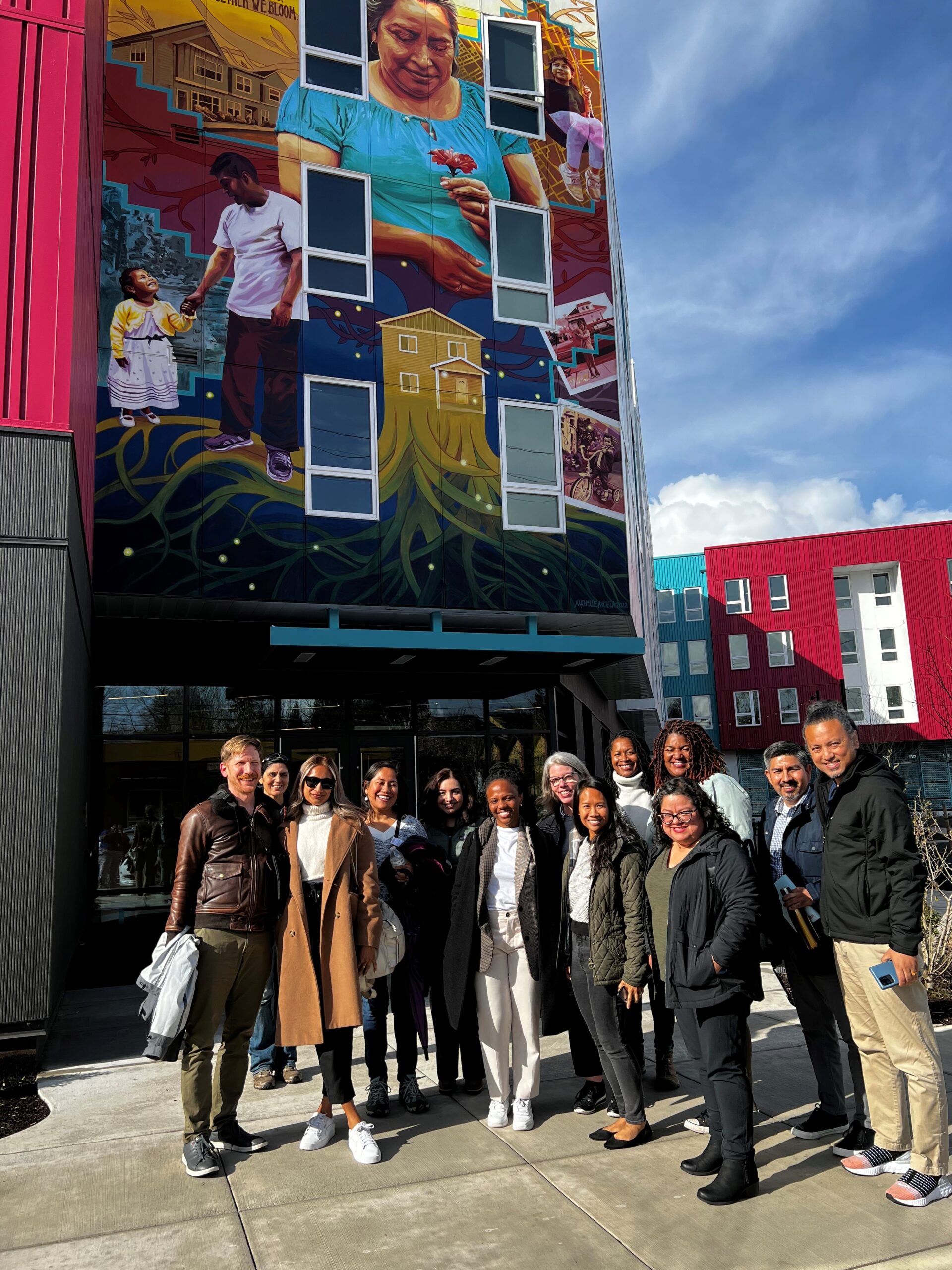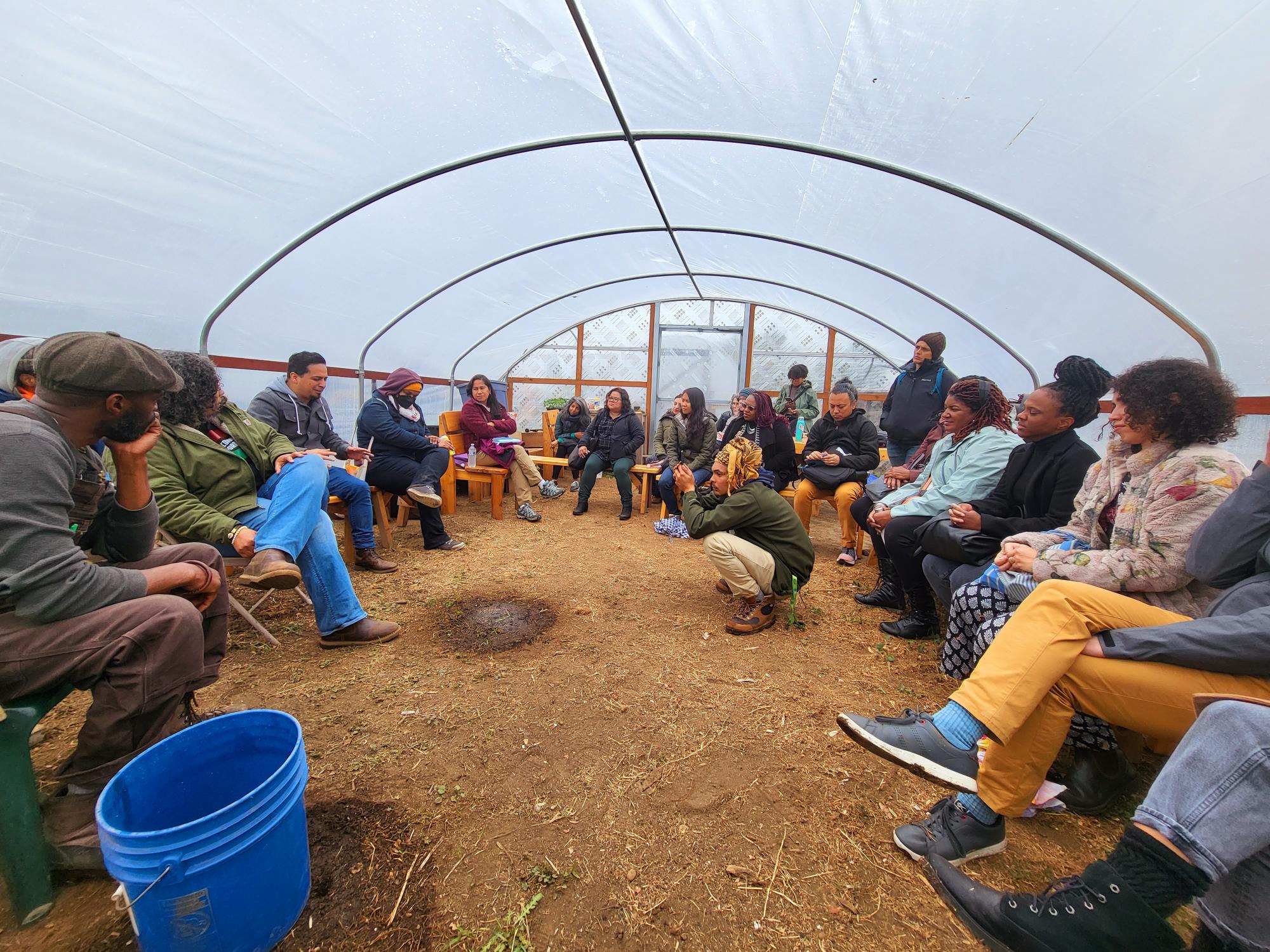BY Shilpa Shankar, Program Associate; Equity Lead at the Robert Wood Johnson Foundation, and a 2023 PLACES Fellow
PLACES, which stands for Professionals Learning About Community, Equity and Sustainability, is a year-long learning journey designed to help sixteen professionals in philanthropy deepen their understanding of systemic inequities and acquire the tools necessary to challenge these inequities, confront harmful truths, and advocate for just practices at their respective organizations. I have been in my role at the Robert Wood Johnson Foundation for about two years, and I applied to the PLACES fellowship to learn firsthand from leaders in communities through site visits, as well as from my peers in the philanthropic sector, about how I can ensure that my own grantmaking practices truly and authentically serve historically underrepresented communities without perpetuating harm. I wanted to dive deep into the equity issues that affect communities throughout the United States and dive even deeper into how philanthropy may have contributed to the perpetuation of systemic inequities and how the sector can truly do better.
Ahead of my first site visit as a 2023 PLACES fellow in April, I had the pleasure of attending The Funders Network’s annual conference in New Orleans, La., in March. On the first morning of the TFN conference, I grabbed my breakfast and scanned the conference room for an empty seat, finding a spot at a table with five other attendees with smiling faces who invited me to join them. These attendees turned out to be PLACES alums. Curious about what was in store for me in the coming months, I asked my breakfast company what to expect as a fellow, and I distinctly remember the first answer I was met with: get ready for one of the most transformative experiences of your professional life thus far.

When I landed in Portland for my first site visit in April, the alum’s words replayed in my head, and I was about to experience just how true his words were. On our first day in Portland, our group had the privilege of hearing from two historians: Direlle Calica of the Institute for Tribal Government and Zachary Stocks of the Oregon Black Pioneers. Their perspectives on Indigenous and Black history in Portland emphasized how forces of systemic oppression dictate whose stories are rarely ever centered or even mentioned when discussing the origin story of a place. From discussions about the ideas of land ownership versus authentic community stewardship to the harsh realities of the kidnapping and forced migration of many people’s ancestors, I was prompted to reflect on how central our histories are to our own well-being and that of generations to come. What opportunities are robbed from us when our history is robbed from us? How does the erasure of history also erase our safety and the safety of our communities? How do all the interconnected systems, including the healthcare system, education system, and government, continue to implicitly and explicitly ignore certain histories and uplift others? This is something that has come up in my work before, but hearing from those affected every day by the intentional erasure of their histories allowed me to more deeply grasp how solely acknowledgment and understanding, as well-intentioned as we feel it may be, is simply not enough. It prompted me to reflect on how the philanthropic sector itself has contributed to and benefitted from the erasure of certain histories and the centering of others. With these thoughts percolating in my head, we entered day two.
On day two, we visited a group of community farmers at Black Futures Farm. Upon arriving at the farmlands, we all gathered under a tent to escape the rainy weather and learn about the incredible efforts taking place on these lands. Seated shoulder-to-shoulder under the tent, beside an impressive array of freshly grown herbs, we began to listen. We first heard from Malcolm Hoover (co-director) about the daily work that takes place on the farmlands, and how he is driven to action each day by the prospect of giving his community a safe place to gather, not only for food but also for a sense of belonging. Other farmers who followed him shared similar sentiments, as well as their own stories about their personal histories, the histories of their communities, and what connects them to the work. Huddled in this tent together, hearing real human stories, I immediately appreciated the notable departure from how nonprofit organizations and philanthropic organizations usually interact. There were no fancy PowerPoint presentations. No numbers or budgets or impact reports. Just a group of human beings listening to another group of human beings share how their work is driven by a deep love and responsibility for their communities. I appreciated the level of candor that was afforded to us by this group of farmers. Although a number of rigid structures rooted in white supremacy, including philanthropic dollars at times, do not act in their favor, these farmers have found ways to be creative with the resources they do have to ensure their communities are not left behind. Many times, we in the philanthropic sector find ourselves up against barriers – grant timelines, budgets, legal considerations, strategy changes, etc., but hearing from these farmers inspired me to also be creative when confronted with barriers. They are required to do it every single day – and it challenged me in a way that transformed my thinking about how I am able to show up. It prompted me to reflect on how professionals in philanthropy need to get creative to earn their allyship, myself included. I can’t say I have all the answers, but I am excited and deeply grateful to keep learning from these community members. The alum was absolutely correct – transformative is indeed the word.

When reflecting on the transformative nature of this first site visit, I would be remiss if I did not mention my fellow cohort members. These 15 individuals supported me, challenged me, and allowed me to grow in ways I never thought imaginable with a group of people I just met. I gained a group of not only colleagues but also good friends! I’m looking forward to the next site visit!
About the Author
 Shilpa Shankar is a Program Associate; Equity Lead at the Robert Wood Johnson Foundation, and a 2023 PLACES Fellow.
Shilpa Shankar is a Program Associate; Equity Lead at the Robert Wood Johnson Foundation, and a 2023 PLACES Fellow.
